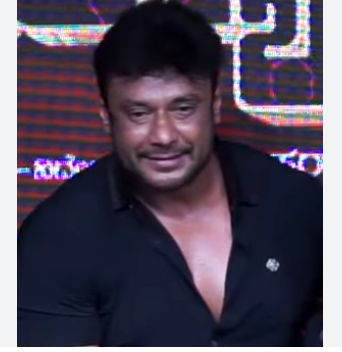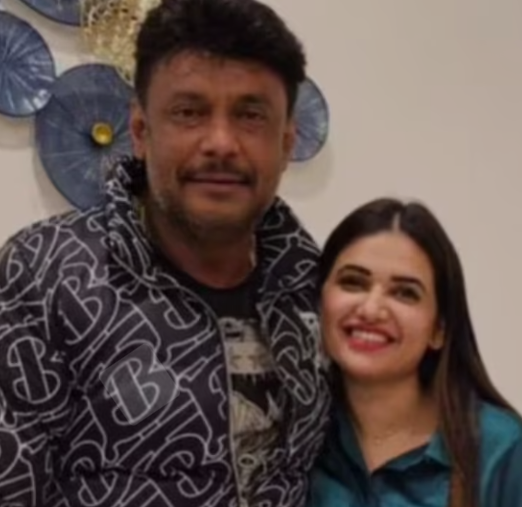On July 17, 2025, the Supreme Court expressed deep concerns about the Karnataka High Court’s decision to grant regular bail to Kannada actor Darshan Thoogudeepa, stating it was “not convinced” by how judicial discretion was applied. The apex court’s remarks signal tough scrutiny over the High Court’s approach in a high-profile murder case.

Key Highlights:
- The Supreme Court flagged the High Court’s judgment dated December 13, 2024, questioning whether it was “panting” to release the accused.
- A bench led by Justice J.B. Pardiwala and Justice R. Mahadevan directed Kapil Sibal, Darshan’s attorney, to convince the court why it should not intervene further.
- The Karnataka government had challenged the High Court bail, claiming it amounted to a whitewash of evidence and underestimated the severity of the crime.
- The Supreme Court refused to stay the bail but made it clear that future bail applications from co‑accused should be evaluated independently and not rely on the contested order.
Context: Renukaswamy Murder Case & Legal Timeline
Darshan was arrested on June 11, 2024, accused of orchestrating the torture and killing of Renukaswamy, a 33-year-old man who allegedly sent derogatory messages to Pavithra Gowda, Darshan’s associate. The brutal assault reportedly lasted three days in a shed in Bengaluru.
- October 30, 2024: Interim bail granted on medical grounds for spine surgery.
- December 13, 2024: Karnataka High Court grants regular bail to Darshan, Pavithra Gowda, and others.
- January 6, 2025: Karnataka government files Special Leave Petition (SLP) in Supreme Court challenging the bail order.
Also Read : Anchor Anushree’s Marriage Fixed at 28: All You Need to Know

Why the Supreme Court’s Concern Matters
1. Judicial Discretion Under Question
The apex court pointed out that the High Court may have prioritized bail too readily, with insufficient scrutiny of facts. One judge bluntly noted the court appeared overly eager to release the accused.
2. Independent Review for Co‑accused
High Court bail need not bind future judges. The Supreme Court clarified that each bail plea from co‑accused must be assessed on its own merits, free from reliance on the current contested order.
3. Fairness vs. Public Safety
The case spotlights the tension between ensuring personal liberty and safeguarding criminal justice integrity. While bail is a constitutional right, courts must balance it against the nature of offense and strength of evidence.
What’s Next? Supreme Court’s Upcoming Hearing
- The Supreme Court has listed the matter for hearing next week (tentatively July 22, 2025).
- Darshan’s legal team must argue convincingly to justify the High Court’s discretion and maintain the legality of the bail order.
- State will underscore allegations of whitewashing and misuse of privilege, including Darshan’s public appearances with a key witness after release.
FAQs
What did the Supreme Court criticize about the High Court’s bail?
The Supreme Court said the High Court appeared overly eager—“panting”—to release Darshan and wasn’t convinced the bail was justified.
Did the Supreme Court cancel Darshan’s bail?
No. The Court refused to stay the bail but agreed to review the Karnataka government’s petition and issued notices to Darshan and others.
What timeline does the Supreme Court follow now?
After refusing to stay bail on January 24, the court listed the matter for full hearing on April 22, with further review scheduled for July 2025.
How serious is the Renukaswamy murder case?
Extremely. The victim was reportedly abducted and tortured over multiple days, leading to death by hemorrhage & blunt force trauma. Witness statements and forensic evidence form the prosecution case.
Does this case affect other co‑accused bail pleas?
Yes. The Supreme Court directed that bail pleas by other accused should be reviewed independently, and not simply rely on this High Court’s contested order.
Final Thoughts
The Supreme Court’s pointed remarks stress the importance of judicial prudence in granting bail—especially in grave cases. While bail remains a cornerstone of personal liberty, its misuse or premature approval undermines confidence in the justice system.
In the coming days, all eyes will be on Darshan’s legal team’s ability to justify the High Court’s judgment. This case may set an important benchmark in defining how appellate courts oversee lower court discretion in bail matters.
